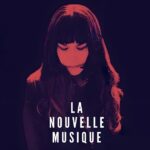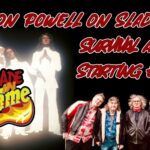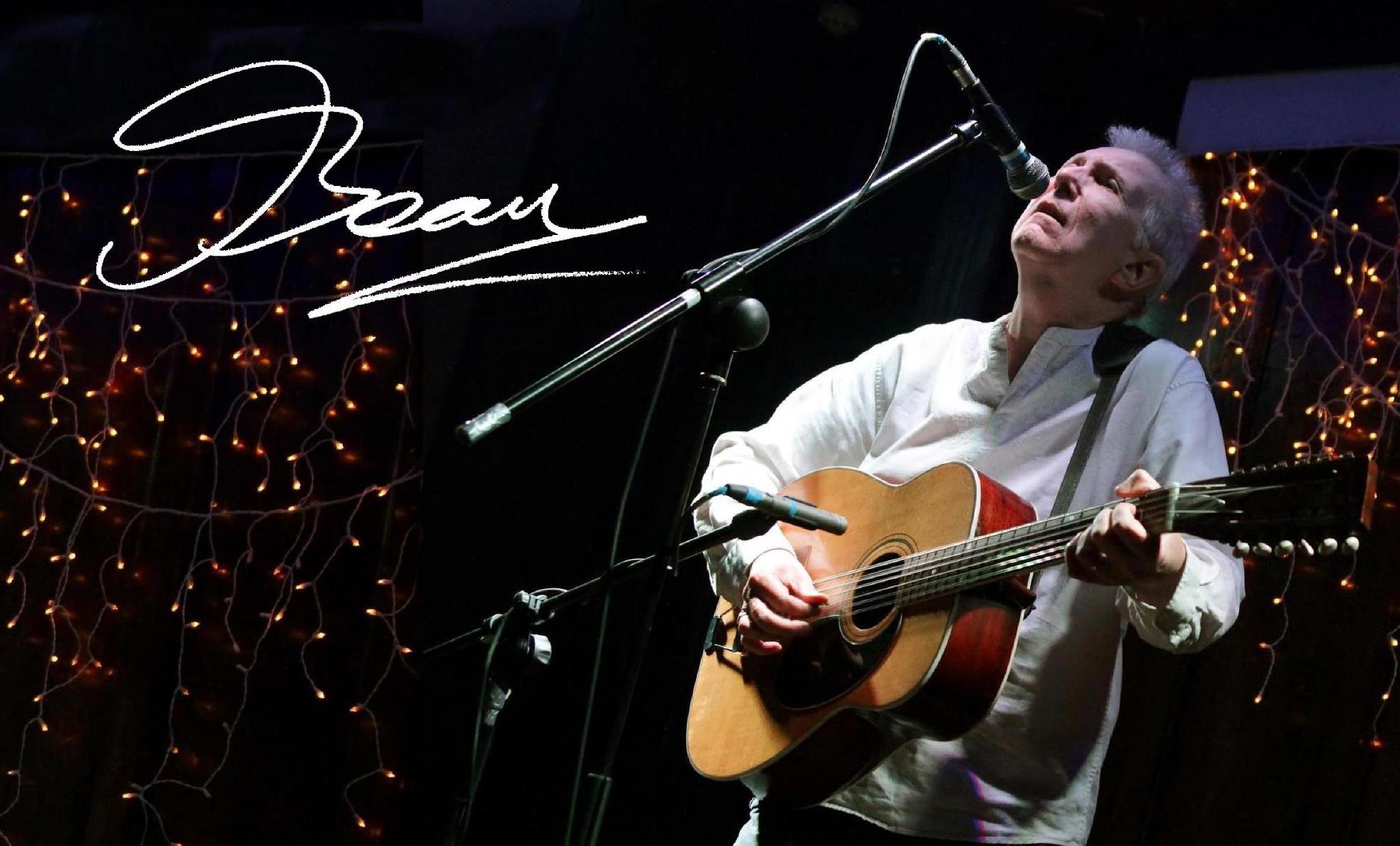
Beau (photo by Shay Rowan)
Trevor Midgley is a singer-songwriter also known by his stage name Beau, under which he released two albums on John Peel’s Dandelion Records label. In this interview, he talks about his latest release, “Kingdom of the Blind”, the role of storytelling in his songwriting, and some of the inspirations behind his music.
What do you think is the significance of the title “Kingdom of the Blind” and how it relates to the themes explored in the album?
Well, plainly “Kingdom Of The Blind” is a lift from the song “The One-Eyed Man” and from the well-known saying from which both are derived.
However, the title does have a wider connotation across the whole piece, in that many (for that, read most!) of the songs gain their clarity and strength through the narrator adopting – sometimes cynically, other times ironically – a minority anti-conventional stance.
…much like a one-eyed man in the Kingdom of the Blind!
Can you discuss the role that storytelling plays in your songwriting, and how you go about crafting compelling narratives within your music?
I guess it’s stating the obvious to say storytelling’s been shown to be the oldest way to communicate beyond the immediate and down through the generations? Pictorial storytelling in the beginning gave way to the oral tradition, both of which far predated the written word or any style of formalised music. So I guess in telling stories I’m just bringing out the primitive in me!
The tales I tell come in many forms. They can be home-grown or received, true, fictional, short, long, simple, complex, anecdotal – I don’t mind. All I ask of a story is it has a focus and an ending – either in the narrative itself, or one the listener can readily discern.
History plainly provides rich pickings, as do fables; even fairy stories. And then of course we have current affairs which by their nature are a never-ending and consistent source.
One thing to say about the stories I tell; I’m not a moralist or a preacher – I find polemicists exceedingly boring. So long as they’re interesting, I’ll write of a respected aristocrat or admiral as willingly as I’ll laud the heroism and dignity of the labourer.
When it comes to “how do I go about crafting?”, if I have one talent – and that’s arguable! – it’s the ability to precis.
At school, we used to have a challenge in English Language where we were given a series of passages to read – maybe three or four pages – and were then required to condense the essence of those pages down to around a couple of hundred words. Where others floundered, I found that really easy. It’s an ability I regularly exploit to this day!
But there’s a downside. Whilst I can reduce sometimes quite intricate narratives down to four or five verses, I find it almost impossible to write at length. Don’t look to me for a four-hundred page novel!
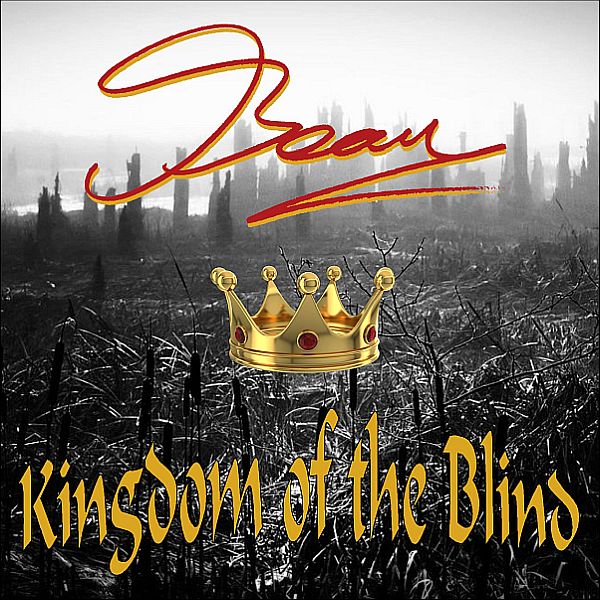
Can you discuss the themes of social media algorithms and modern revisionism explored in your album?
I’m something of an absolutist when it comes to free speech (I exclude from this the entitlement to shout “Fire!” in a crowded theatre!).
I know it’s been said before, but those who can’t champion the right of an individual to voice thoughts or write words with which they fundamentally – probably passionately – disagree can’t claim to be champions of free speech. They are repressives.
Social media – originally an uplifting idea – is undoubtedly benevolent if all you want to do is keep up with old friends. However, the power and willingness of the Twitters, Meta et al of the world to instruct their algorithms to channel “right-think” and to decide on (and censor) “hate-speech” is, I believe, truly disturbing. In large part, it’s contributed to the intellectually stultifying and ultimately enfeebling consequences of “cancel culture”.
This, in essence, is the thinking behind the song, “Impure Thought”; and it’s a view I reserve the right to hold and to express without fear or favour…
How did your experiences of Ukraine influence your songwriting on this album?
Without doubt, the most significant world event of 2022 was the Russian invasion of Ukraine. My guess is any writer looking to hold up a mirror to the world around him during that period would find Russia’s incursion impossible to ignore!
It’s important however not to be too narrow or specific when writing songs around newsworthy happenings. I generally prefer to be “inspired by” current events, rather than write “about” them. “About” songs tend to have a very short shelf life, whereas “inspired by” pieces can have real legs if they’re illustrative of a wider point. The idea, in short, is to tap into the underlying truth that transcends the specific.
“The One-Eyed Man” is a prime example, where the “underlying truth”, the focus of the piece, is the clear-eyed vision and strategy – common in all successful resistance movements – that has so far been a hallmark in the defence of Ukraine.
What is the message and meaning behind the song “Right Side of History”?
Long ago, a journo asked me, “Do your songs have a message?” Of course they do! Every song has a message – even the “moon and June” rhymers are conveying a message. (That said, having listened carefully to The Trashmen’s “Surfin’ Bird”, I’ll happily concede there can be exceptions…)
But like I’ve said, I don’t preach; merely seek to reflect what experience has shown down the ages.
In “Right Side Of History”, we’re talking about the transient nature of fashionable attitudes. Very few supposed verities – however modern and seemingly virtuous – remain eternal!
Can you elaborate on the inspiration behind “Skin in the Game” and the real-life incidents that influenced its creation?
“Skin In The Game” is a fictional narrative but is another of the “inspired by” songs, the benefits of which we’ve already sketched out.
There have been many occurrences cited – most, it must be admitted, from the US – of both serving and former soldiers carrying out acts of appalling violence brought on, it’s been said, by post-traumatic stress. There was a particularly tragic case in Lakeland, FLA. in 2021 where one former US marine – he’d been a marksman, and went by the name of Corporal Bryan Riley – suffering from PTSD went out on a killing spree. In the event, he personally survived; not all do.
This side of the pond, we had a widely reported event where the instinctive defensive actions of one of our former soldiers – also suffering from PTSD – almost killed his young daughter when she unexpectedly woke him from sleep; a deed which served only to exacerbate that poor guy’s trauma.
The effects of PTSD run deep and, as the song hints, even now are not always fully recognised or acknowledged.
What do you hope listeners take away from your song “The Dystopian National Anthem”?
OK – well let me start by saying “The Dystopian National Anthem” was one of my easiest ever songs to write! That’s because it’s literally stuffed with clichés; in fact, it IS a cliché!
I remember being struck how the word “Dystopia” sounds like a country; like, say, Albania or Ethiopia or – as it turns out – almost forty others. Then I figured, “Well, if Dystopia WAS a country, it would have to have an anthem.” There would obviously have to be a bombastic, martial tune, and naturally the anthem would need to reflect the nation’s values; indeed, it would have to extol them!
To make life easier for myself, I downloaded English translations of, I think, eight national anthems. I recall there was the Russian, French, Spanish, Italian and I think the Argentinian anthem and maybe one other; plus “The Star-Spangled Banner” from the US and our own (now) “God Save The King”.
What amazed me were the themes so many of these anthems had in common.
God, as you would expect, is pretty widely invoked, with most nation states convincing themselves He is one of their more fervent backers. Blood – the shedding/sacrificing thereof – seems to elicit wide approval. Surprisingly, traitors are also a consistent feature, though across the board they’re afforded short shrift! (The phrase “…skulking vile assassins” is a straight lift out of one of the anthems, by the way. It’s not a poetic flourish on my part!)
Even our own British national anthem has been plundered, contributing verbatim those slightly surprising words “Every latent foe…”
(Oh, and just in case you entertain the notion “God Save The King” is a benign, innocuous anachronism, may I suggest you check out all six verses; unless you’re a Scot, that is, in which case better stop at the end of verse five!)
So there we have it. “The Dystopian National Anthem” really is a cliché!
The only thing I’d add is I wrote it, and sing it, as a pastiche. It’s a joke; whereas day in day out so many people around the world stand with hands on hearts and tears in their eyes and sing this sort of stuff for real!
What musicians or artists have influenced your songwriting over the years?
Surprisingly, the songwriters I most admire aren’t the ones you might think.
Bobby Dylan hasn’t been a major influence, though I do love his work – at least the work from his early, most creative years. Tom Paxton and Phil Ochs certainly have; they opened me up to the appeal of topical, contemporary folk.
Lead Belly of course was a key influencer, not only in relation to twelve-string guitar but also again around writing on topics of the day.
But my greatest stylistic influencers have been the great wits; the Noel Cowards, Tom Lehrers, Flanders & Swanns of this world.
Often sardonic but always well-crafted, these are writers who use the English language in song with such consummate skill that even the most difficult times and topics can be perfectly represented and reflected.
I’d offer as examples Coward’s wonderful “London Pride”, composed in 1941 during the blitz; Lehrer’s “Poisoning Pigeons In The Park”; and Flanders & Swann’s “Slow Train”. Michael Flanders’ superb lyric wistfully contemplates the Beeching cuts to the UK’s rail network in the early-60s.
All are perfect lyrics, married to totally appropriate melodies.
And just in case you’re thinking, “These are all old guys, way outside of our time…” check out Kit Hesketh-Harvey (late of Kit & the Widow). Hesketh-Harvey’s work, including his utterly sublime “The Swan”, is straight out of this tradition of wit and erudition.
What more do I need to say?
Has your approach to songwriting changed to what it was back in the 1960s and 1970s?
Basically not – I’m still a words-man at heart. Of the hundreds of songs I’ve written, I can still count on the fingers of one hand those where the melody came first.
What has changed however – particularly in relation to current affairs – is the breadth of topics that are now available and the speed of their delivery; all down to the twin developments of the internet and the twenty-four hour news cycle. The enhanced ability to check facts and research context is absolutely invaluable!
But alongside this wealth of access, there are pitfalls; quite apart from “fake news”, it’s important to remember facts per se are the province of journalists, not songwriters. For a songwriter, facts are merely pegs upon which to hang a decent lyric.
As an aside, the late Phil Ochs – for whom I had the greatest respect and affection – never understood to his dying day why he wasn’t as popular as Dylan.
In truth, it was all a matter of personality and mind-set. In addition to being a brilliant self-publicist, Dylan interpreted the scene, whereas Phil reported on it. That’s why Dylan’s work has ultimately had greater impact, recognition and longevity.
Sometimes, spectators really do see more of the game!
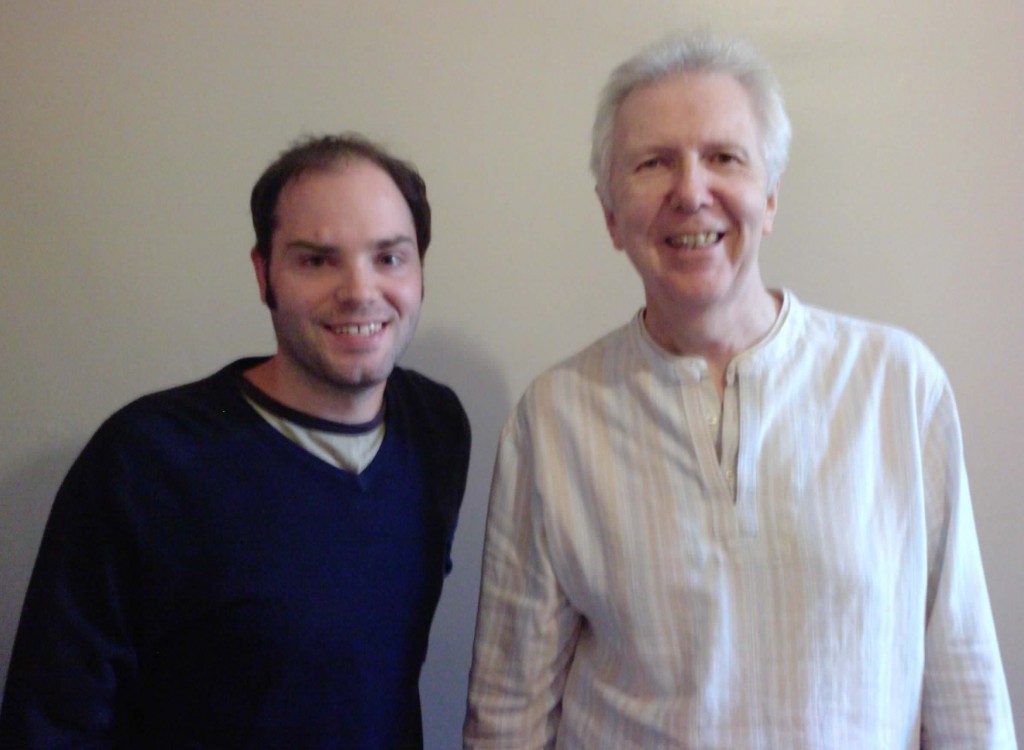
How have you seen the music industry change and evolve over the course of your career, and what advice would you give to artists trying to navigate it today?
I’m not the person to be dishing out advice to up-and-coming musos! One of my greatest claims to fame is that I can never be considered a has-been, seeing as how I never was!
That said, there has been a sea-change from what I experienced “back in the day” (horrible expression!).
Pretty well right through until the late ’60s, it was frighteningly difficult for an aspiring artist to get their music to a wide audience; other that is than in a limited way, by performing live.
The BBC was very hard to break into – and in the early part of the decade, the Beeb was really all there was; no indy stations, no online, no nothing. If you wanted to record, well, it had to be a recording contract with an established company. And they were like hens’ teeth! But sometimes, it did happen…
So, if by dint of perseverance or luck you did get a contract – and were successful – maybe 80% of your income would come from record sales with 20% generated through live shows. Essentially, live performances – often in so-called “package shows” – were a vehicle to stimulate record sales.
Half a century on, and with the advent of digital recording, the internet, downloading, and streaming, that 80/20 split has flipped completely. Now, if you’re lucky(!), 20% of your income will come from recording, whilst 80%-plus will come from live work.
That’s a big change, but it’s one that’s certainly advantageous to the young, enthusiastic, and tech-savvy.
So my advice would be, take EVERY opportunity to use digital media to publicise and disseminate your work, then get out there and gig. That’s where the money is!
But then, they all know that….. surely?
Can you discuss any upcoming projects?
Well, I’m as sure as I can be the world will keep turning, people will keep doing what people do, and as a result I’ll have enough material for yet another outing in 2024! I have to say, things are looking good in that direction so far!
In the meantime, Cherry Red are pushing an idea for what could be termed a “project for the interim” – something for a little later this year. It’s all very hush-hush at the moment – we’re still in the early stages, so it may or may not happen. Watch this space!
Just quickly and finally, to revert to the previous question; in the music industry, never believe anything until it actually happens. That’s always been the way and it’s probably the best advice I can give to any “artists trying to navigate it today”!
To slightly misquote Paul Simon, “after changes upon changes, things are more or less the same…”
Further information
“Kingdom Of The Blind” is released on all digital platforms on Friday 21 April.
http://beausrecordings.blogspot.com/
See also John Peel’s Dandelion Records podcast and Beau interview
